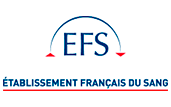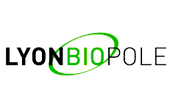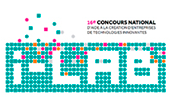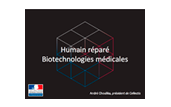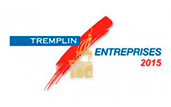Technology
PDC*vac, a new class of cancer vaccines based on a unique antigen presenting cell
Immune-checkpoint inhibitors such as anti-PD-(L)1 offer unprecedent hope to cancer patients and are becoming a backbone treatment in several indications. This market is worth tens of billions of euros. Yet around 70% of patients do not respond to anti-PD-(L)1, often due to a lack of pre-existing anti-tumor immunity. Therefore, combining immune checkpoint inhibitors with therapeutic vaccines is expected to improve responses (Mellman I. et al., Cancer Immunology Research, 2016).
For decades, researchers have been working to develop therapeutic vaccines to promote a potent anti-tumor immune response in cancer patients. The most potent approach is based on dendritic cells (DC) thanks to their unique antigen-presenting properties. However, most DC-based vaccines are developed from the patient’s own cells (autologous), resulting in complex and costly logistic and production processes, and only modest clinical efficacy thus far.
Thanks to its exclusive cell line of Plasmacytoid Dendritic Cells (PDC*line), PDC*line Pharma is offering a groundbreaking solution that addresses the scalability and potency challenges faced by conventional DC-based vaccines. PDC*line is much more potent than conventional DCs in priming and boosting fully functional antitumor CD8+ T cells displaying a strong cytotoxic activity against tumor cells. Unlike autologous DC-based vaccines, it is an off-the-shelf approach, easily scalable at industrial scale. In addition, it is highly versatile, and it is synergetic with anti-PD-1 immune checkpoint inhibitors.
The PDC*vac is a unique off-the-shelf cancer vaccine based on a cell line of Plasmacytoid Dendritic Cells (PDC*line). PDC*line is a proprietary cell line derived from a human leukemic cell expressing HLA-A*02:01 phenotype. From a fully characterized GMP Master Cell Bank, the cells are easy to expand in suspension in synthetic medium without growth, maturation or differentiation factors.
PDC*line is pulsed in vitro with HLA-A*02:01-restricted peptides derived from target tumor antigens that are expressed by the cancer type to be treated. It is irradiated to stop its proliferation and can be stored in liquid nitrogen over the long term. When needed, the off-the-shelf product is thawed and administered by injection to HLA-A*02:01-compatible patients in order to prime and boost a specific antitumor CD8+ T‑cell response. PDC*vac is classified by the EMA (European Medicines Agency) as an ATMP (Advanced-Therapy Medicinal Product) within the category of Somatic-Cell Therapy Medicinal Product.
Our breakthrough technology, PDC*vac is highly potent in priming and boosting fully functional antitumor CD8+ T cells displaying a strong cytotoxic activity against tumor cells. It is more easily scalable, more versatile and more potent than other dendritic-cell-based vaccines, and it synergizes with the use of anti-PD-1 immune checkpoint inhibitors.

PDC*vac currently comes in the form of several cancer vaccine drug candidates:
- PDC*mel: completed a first-in-human phase Ib feasibility trial in 2017 for melanoma, confirming safety, the absence of rejection and biological activity. Results were published in Oncoimmunology journal.
- PDC* lung: our leading candidate for non-small-cell lung cancer (NSCLC) targeting widely expressed shared tumor antigens. Phase I/II clinical presented at ESMO-IO in Dec. 2024 were promising, and a randomized phase IIb is planned for early 2026.
- PDC*neo: our next candidate for colorectal cancer (CRC) as monotherapy, targeting patient-specific neoantigens, with a Phase Ib trial anticipated in 2026.
- Additional developments have also been initiated for breast, liver and bladder cancer...

